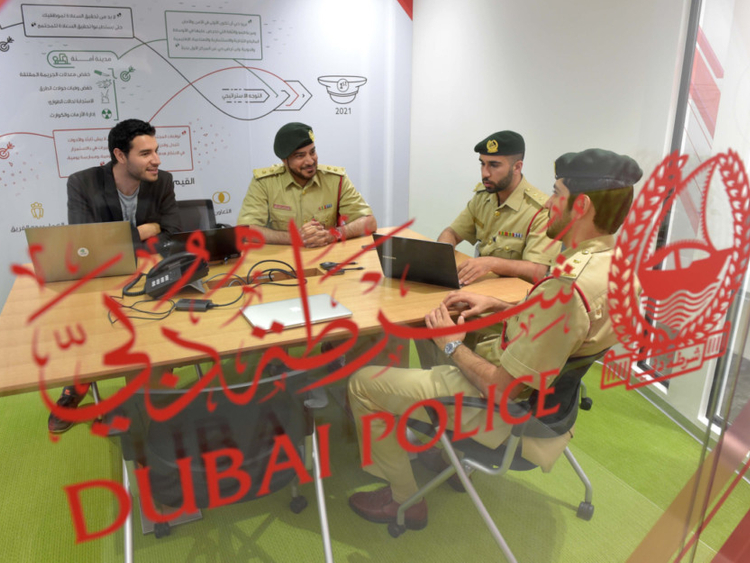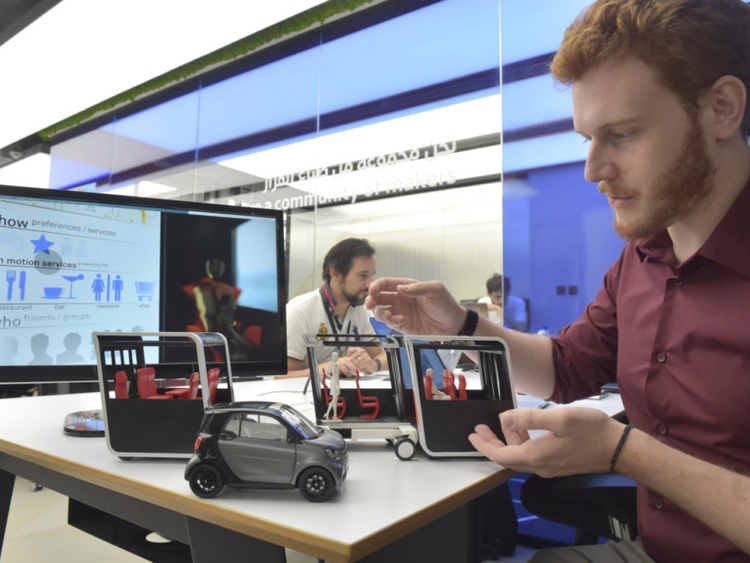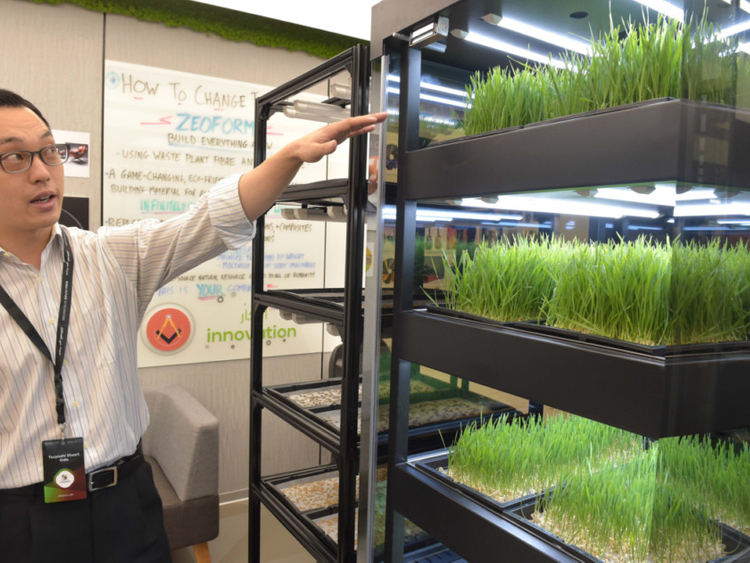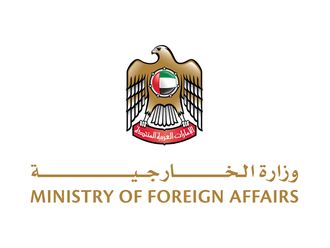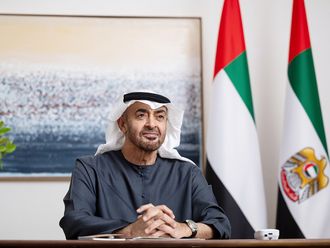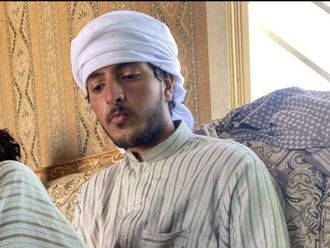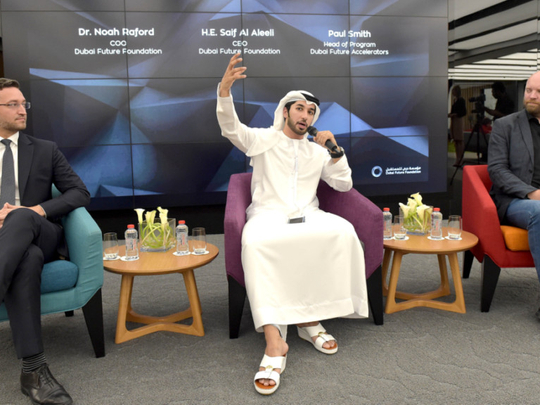
Dubai: The line-up of the next batch of government entities joining the Dubai Future Accelerators (DFA) programme, which recently announced radical proposals to meet challenges in eight sectors, is expected to be revealed in early November.
The announcement will set in motion the DFA process of identifying emerging obstacles and opportunities in more sectors, then pairing government departments with innovative private entities to develop ground-breaking solutions.
Currently, eight Dubai entities — mostly government departments — are working with 30 private sector establishments on potential breakthroughs in safety and security, education, health care, sustainable infrastructure, energy and water, technology, transport, and finance.
The current participating Dubai entities are Dubai Police, Knowledge and Human Development Authority, Dubai Health Authority, Dubai Municipality, Dubai Holding, Roads and Transport Authority, Dubai Electricity and Water Authority, and Emirates NBD.
Saif Al Aleeli, CEO of Dubai Future Foundation, which launched DFA, told Gulf News on Wednesday that the second cycle of DFA will see participation from other government departments, which are expected to be named in the first week of November. There will be three cycles per year under DFA, he added.
It means more sectors will be targeted for the development of cutting-edge solutions, in partnership with some of the world’s most innovative companies, which will be shortlisted after their prototypes and proposals are evaluated. His comments came on the sidelines of a press briefing at the DFA headquarters (in Jumeirah Emirates Towers), which was inaugurated recently by His Highness Shaikh Mohammad Bin Rashid Al Maktoum, Vice-President and Prime Minister of the UAE and Ruler of Dubai.
Al Aleeli said: “This [DFA] is an ongoing process. Exploiting the opportunities of the future and trying to overcome the challenges of the future is an ongoing task — you can’t stop, basically … You need to be aware what challenges you might face in your own sector; what disruptive innovations might change the whole game for you, in education or health [for example]. So, you need to make the right decisions right now. That’s why we are ‘accelerating’ and pulling the future towards us.”
Some of the accelerators in the first cycle are looking at Artificial Intelligence to fight cybercrime, growing plants in mist without using soil, Hyperloop trains to transport passengers at 1,200km/h, and others.
The DFA’s CEO added that such “next generation technologies” are in “different maturity levels”, from concept to testing. He said the accelerators, besides being viable in and of themselves, should be “tailored to the UAE’s context and Dubai’s context” as well. The “deployment” of the approved proposals will occur through the relevant government department.
Al Aleeli added that some projects may not be deployed but rather invested in, following an agreement between the government entity and private establishment, on a case-by-case basis. The initial funding for DFA is Dh1 billion over five years.
For the first cycle of DFA, over 2,200 companies from 73 countries had applied to be part of the programme, including one submission from scientists in Antarctica. Eventually, only 30 finalists were chosen to work with the eight participating Dubai entities in the first round.


